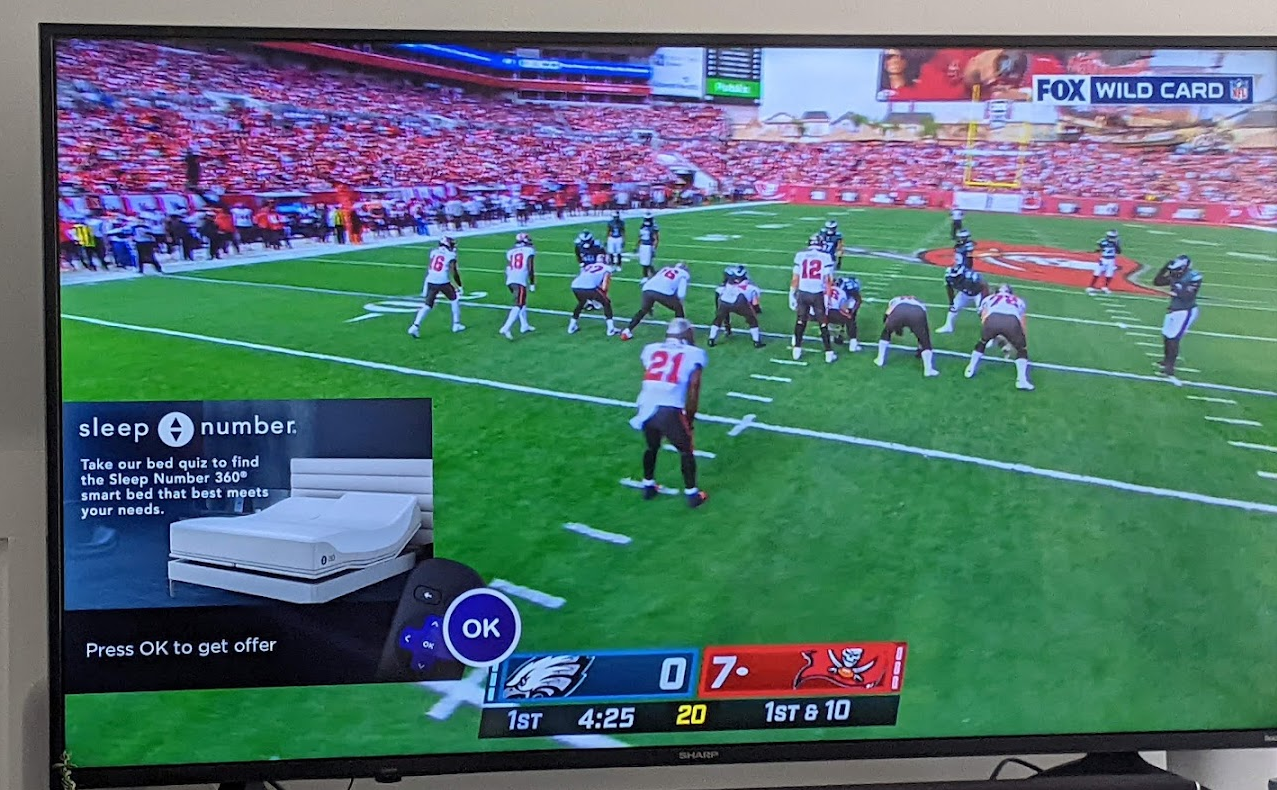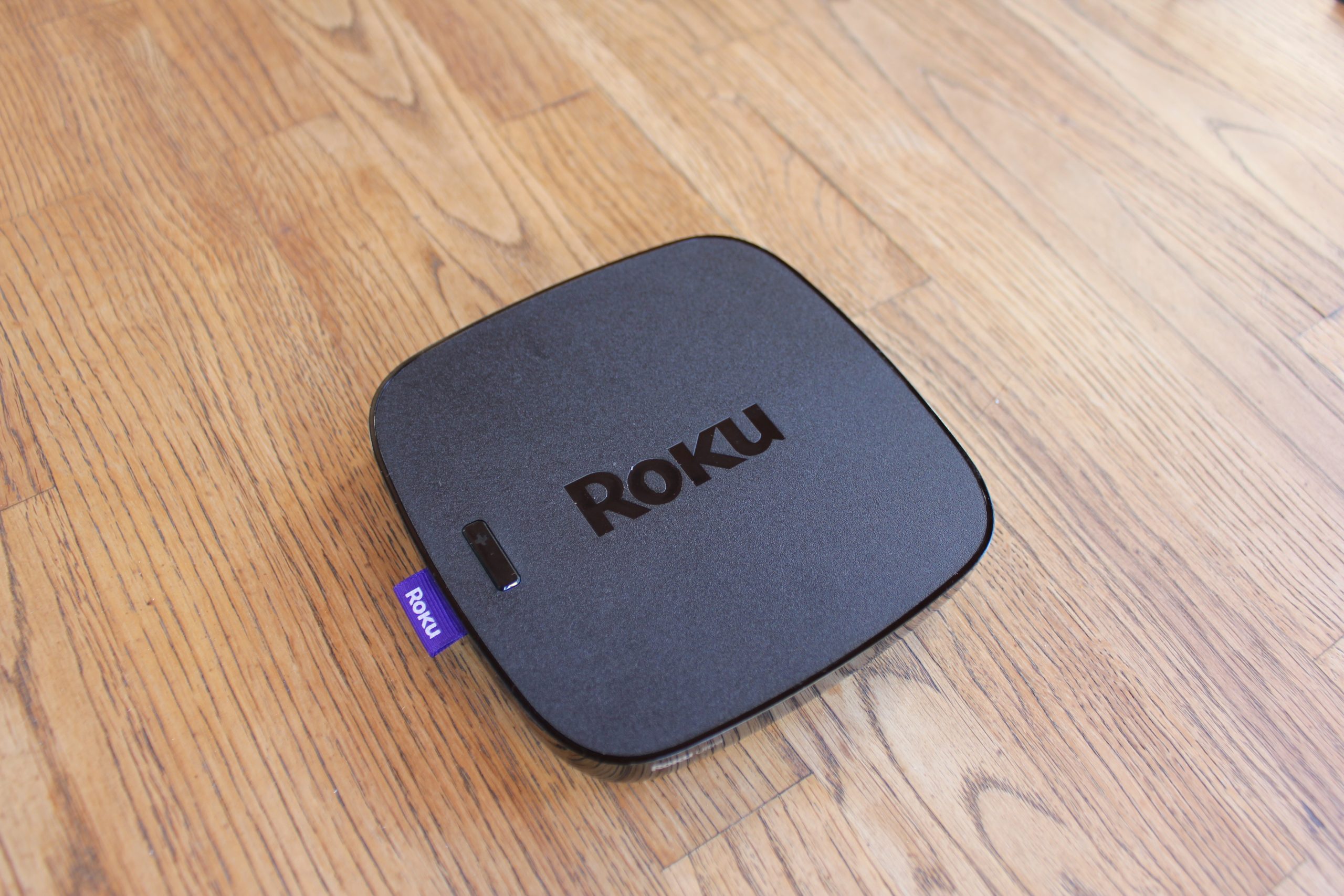Update: A Roku spokesperson has told us that this ad display was a bug and that said bug been resolved, but has not provided any additional clarification or insight at this time.
Some Roku smart TV owners are seeing banner ads appear over live content, according to a thread on the r/cordcutters subreddit.
A user named p3t3or posted the following message:
Welp, this is the last time I purchase or recommend a Roku. After a Sleep Number commercial, I just got a Roku ad sidebar while watching live TV. Really loved the Roku experience up until now, but this is a deal breaker.
The message was accompanied by the following photo:

The photo shows a Sharp TV running Roku software and displaying an ad for a bed over a live sports broadcast, plus a prompt to 'press OK to get offer."
These ads don't seem to appear on Roku's own hardware, like the Roku Ultra, Express, Streambar, or Streaming Stick. Rather, they show up on certain smart TVs running the Roku TV platform—and it might just be certain brands, like Sharp. Some owners of TCL Roku TVs commented that they had not seen the ads.



 Loading comments...
Loading comments...
